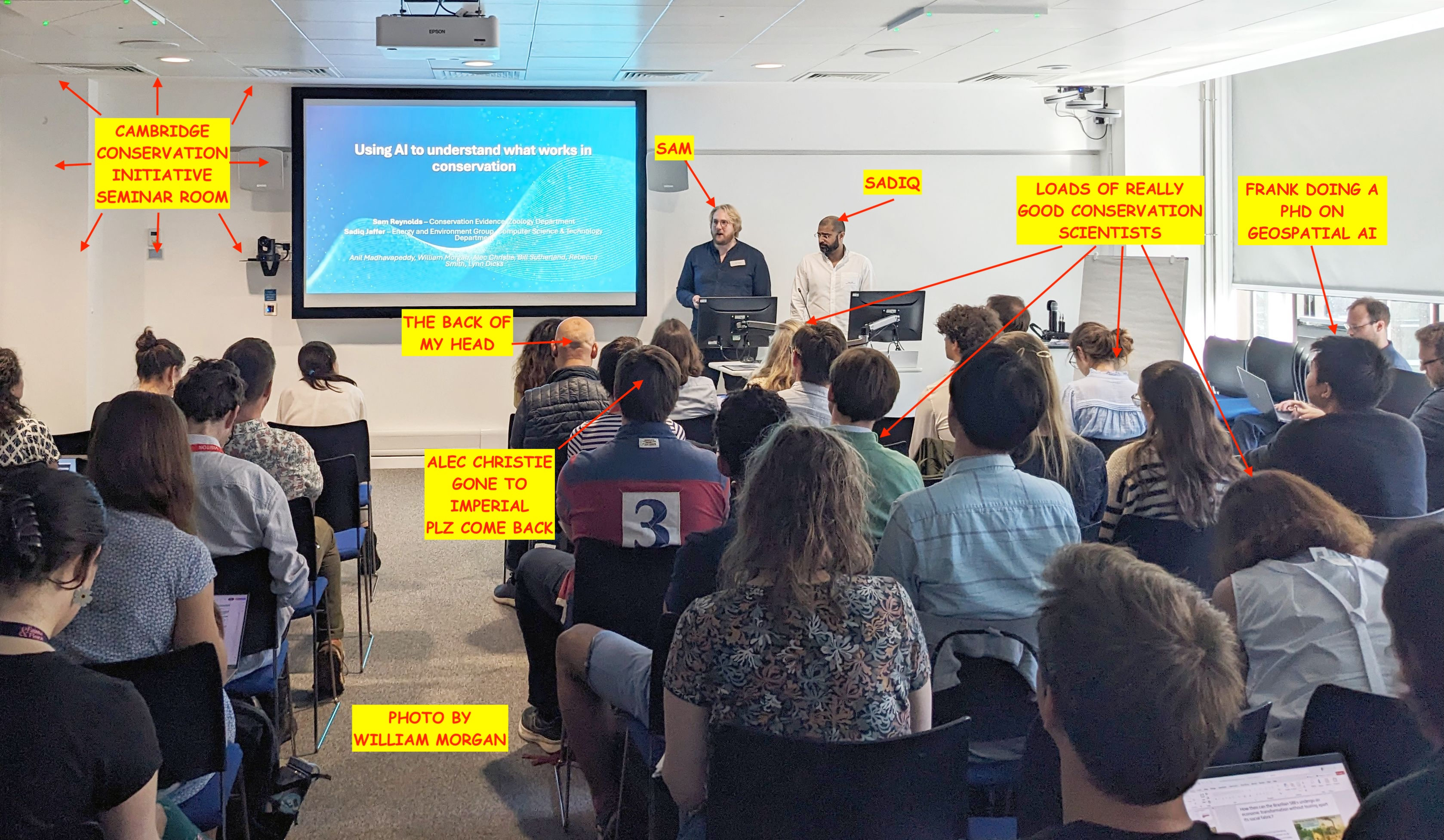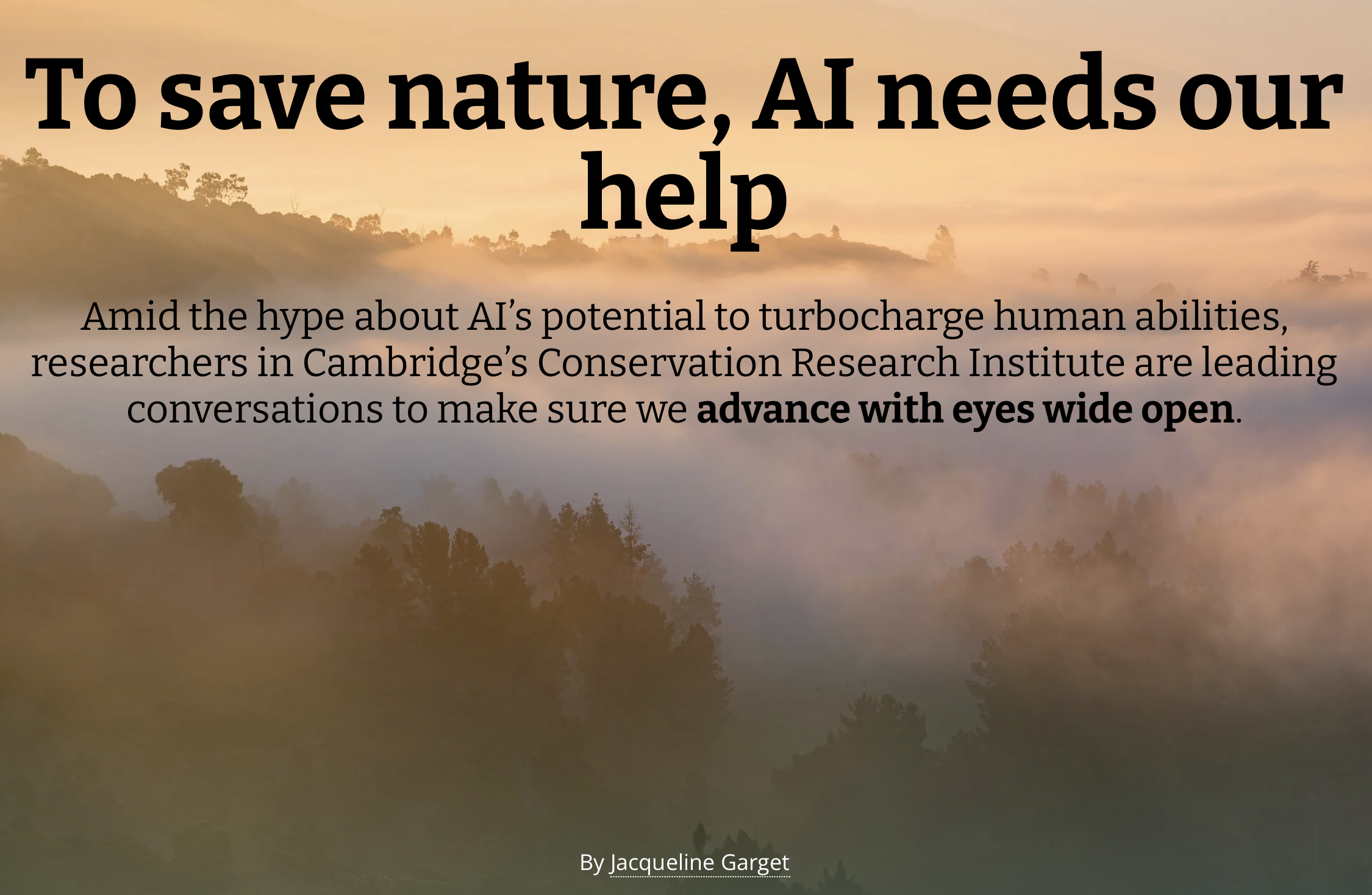In my earlier note about how AI should unite conservation, I talked about the robust debate ongoing within Cambridge about whether or not we're too "AI obsessed" and are losing track of our goals in the rush to adopt learning algorithms. Jacqueline Garget has written a brilliant roundup about how colleages like Sam Reynolds, Chris Sandbrook and Sadiq Jaffer in the CCI are leading conversations to make sure we advance with eyes wide open.
The article covers many areas of concern to us right now: the takeover by big tech companies of data, our own conservation copilot project, and ultimately how people and equity must remain at the centre of this process if we are to avoid causing harm to humans.
Have you ever persisted in following your SatNav even when you knew you were going in the wrong direction?
If so, you’ll know that placing all your trust in a machine powered by AI, without also engaging your own intelligence, does not always get you where you want to go.
This is the message that a group of conservation scientists at Cambridge is pushing hard. Efforts to protect the natural world need all the help they can get - but before embracing AI as the solution, we need discussions about its risks and wider implications. -- To save nature, AI needs our help - cam.ac.uk (2025)
Last week, we held a brilliant half-day AI for Climate and Nature Day[1] with AI@Cam that had many of the CCI community present, and this topic was at the forefront of the group discussions at the end.

I thought Chris Sandbrook's point about societal change was key:
If we give all our attention to inventing new AI tools to fix specific conservation problems - important as these are - we’re missing a trick."
AI’s biggest impact on biodiversity is probably going to be through the ways it changes wider society. -- Chris Sandbrook
I've been thinking recently that this principle applies at a local level as well, and not just with respect to AI. We generally to figure out how to change incentives towards more positive collective action, with lightweight ways of keeping score that do not give perverse incentives to cheat.
One really interesting path (pun intended) in this direction is Gabriel Mahler's project on generating urban walkability maps that I've been supervising this year for the CompSci MPhil. Gabriel combines Andres Zuñiga-Gonzalez's urban tree maps with OSM labels in order to help people to really enjoy walking around cities. Imagine you want to bias your experience of walking to work along different dimensions such as the chance of seeing a particular bird you like, or need to go shopping at a local coop, or need to find a safe running route late at night. AI should be a tool that helps you to do all of this, and improve the general experience a human wanting to get the most out of nature, and generally help humans value their wild neighbours.
-
I only had time to do a Bluesky post storm and Jon Ludlam did a roundup as well.
↩︎︎

